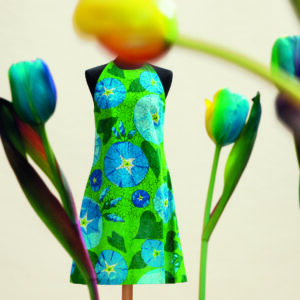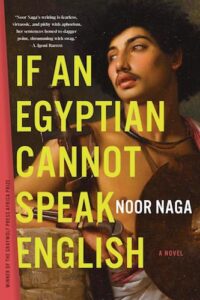
Noor Naga, If an Egyptian Cannot Speak English
Of all the books I read this year, no single work struck as great a blow against the idea of empire and privilege as If an Egyptian Cannot Speak English, by Noor Naga. The novel tells the story of an Egyptian-American woman “returning” to a country that was never truly hers, and of her dalliance in Cairo with a man left unmoored by the aftermath of the Arab Spring. Naga’s prose is wondrous, and her insights into the cruelties and absurdities of “globalization” are truly amazing.
–Héctor Tobar, author of Our Migrant Souls: A Meditation on Race and the Meanings and Myths of “Latino,” forthcoming in 2023 from MCD.
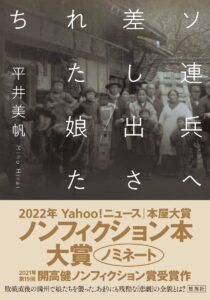
Miho Harai, The Daughters Offered to the Red Army
In the aftermath of Japan’s defeat in World War II, when the Soviet Red Army entered Japan-occupied Manchuria, girls and young women from the Kurokawa Settler Community were dispatched to provide sexual services to the Soviet soldiers in the hope of “protecting their community.” Miho Harai’s book The Daughters Offered to the Red Army reveals the immeasurable sacrifices that were forced upon these daughters, but even more appalling is the same community’s systematic and persistent silencing of the women’s experiences. Such practices are not limited to wartime. It’s always the weakest and the most virtuous who sustain the most harm. And similar “sacrifices” are still imposed all over the world.
–Kanako Nishi (translated by Allison Markin Powell), author of Dawn Breaks
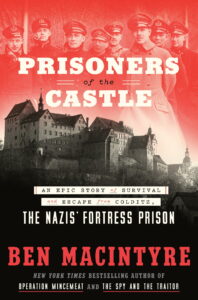
Ben Macintyre, Prisoners of the Castle
I finished reading what turned out to be my book of the year just in time to include it ahead of the deadline for this list: Ben Macintyre’s Prisoners of the Castle, his masterful history of Colditz, the special German fortress prison for POWS who had made a habit of trying to escape from other camps. It’s absurdly readable (and at times just absurd) as well as being informative, hilarious and deeply moving. A distinctly British myth is dismantled and in its stead something nuanced, more humanly engaging—and no less heroic—emerges. What with the BBC adaptation of his earlier Rogue Heroes, about the formation of the SAS, Macintyre is clearly having his moment—deservedly.
–Geoff Dyer, author of The Last Days of Roger Federer: And Other Endings
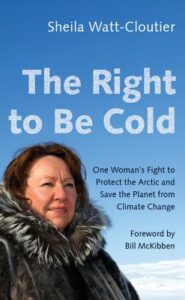
Sheila Watt-Cloutier, The Right to Be Cold
In anticipation of a research trip to the Arctic this summer, I read and learned a lot from Sheila Watt-Cloutier’s environmental memoir, The Right to Be Cold. As an Inuk woman who has survived profound degradation of both traditional Inuit culture and the Arctic landscape in the span of her lifetime, she writes with particular insight about climate change as a human rights issue that links all of us who live on the planet. I felt inspired by her rise from humble beginnings in Kuujjuaq, Quebec—where she was raised by a single mom and grandma, traveling by dog team in an ice-based hunting culture—to become a decorated environmental activist.
–Emily Raboteau, author of Searching for Zion
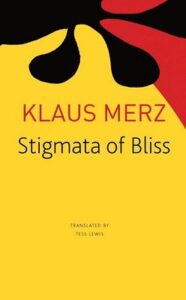
Klaus Merz, Stigmata of Bliss
Stigmata of Bliss is composed of three self-contained but interrelated novellas—Jacob Asleep, A Man’s Fate, and The Argentine—grounded in the Swiss canton of Aargau but often roving far beyond its boarders. As a tryptic, they could be considered as an archipelago; the unseen, unwritten expanses between as consequential as plate tectonics.
In each, the narrative takes the mode of a call and response, casting back and forth across a lifetime, or several, with all the restive indelibility of dream or deep memory. Merz doesn’t shy away from wonder (though he doesn’t hold it to ransom, either). Throughout, there are images and phrases that knocked my breath out with the same force as certain vertiginous mountain ranges: “Sometimes he wishes his children would grow up inside his ribcage—and make it expand.”
–Josephine Rowe, author of Here Until August: Stories
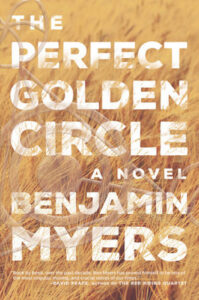
Benjamin Myers, The Perfect Golden Circle
I loved The Perfect Golden Circle by Benjamin Myers. The story of two social misfits who work together to design and make increasingly gloriously intricate crop circles over one summer in the south of England simply because they love the countryside and strive to dedicate themselves to adding to the sum of sheer, pointless, transient beauty in the world.
–Celia Hawkeworth, translator of Battle Songs, by Daša Drndic, forthcoming in 2023 from New Directions
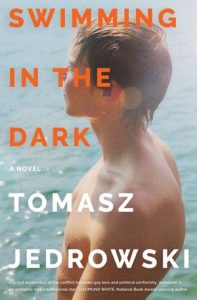
Tomasz Jedrowski, Swimming in the Dark
One of the best books I’ve read this year is Swimming in the Dark by Tomasz Jedrowski. It’s a quietly devastating portrayal of queer love set in the final years of the Polish People’s Republic. The novel takes the form of a letter to a former lover with the tenderness and immediacy of each unrequited “you” without ever slipping into sentimentality. Ludwik and Janusz meet at an agricultural work camp and spend several weeks together camping in the countryside.
However, their return to Warsaw burdens their bond with secrecy, fear and tough decisions to be made. I loved the gentle pace of Jedrowski’s lyrical prose with which he manages to interweave the personal with the political, showing their innate interdependence. Through a painful process of both learning and unlearning, Ludwik manages to shed his deep-rooted shame and stay true to that inner voice which, under layers and layers of censorship, still whispers that a better world is possible.
–Lana Bastašić, author of Catch the Rabbit
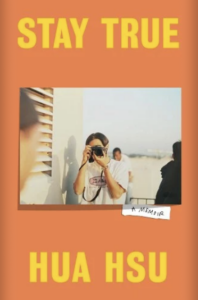
Hua Hsu, Stay True
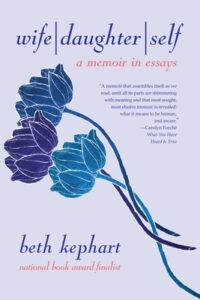
Beth Kephart, Wife/Daughter/Self
It seemed an unlikely book for me when my friend insisted I give it a try (I recognized about 10 percent of the songs/bands he wrote about), but Hua Hsu’s Stay True is a memoir that will ring in me for a long time. Its precision, its ease, its embrace of contradictions. Mostly I admire how much credit Hsu gives his readers. He doesn’t over-tend to us, or lean us into any particular emotional state. I got to feel what I felt as I went along, and it made me connect deeply to Hsu’s story and the people in it.
The other book that swept me away this year is Beth Kephart’s Wife/Daughter/Self, with her gentle exploration of those three states of being. Kephart’s images are often breathtaking—her gift.
–Debra Gwartney, author of I Am a Stranger Here Myself
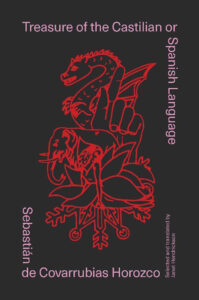
Sebastian de Covarrubias’s Horozco, Treasure of the Castilian or Spanish Language
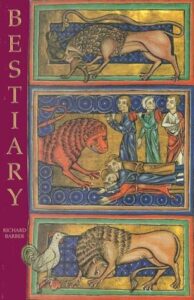
Richard Barber, Bestiary: Being an English Version of the Bodleian Library, Oxford, MS Bodley 764
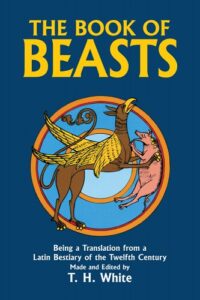
T. H. White, Book of Beasts
I once heard Anna Badkhen give the advice that you should make a point of buying books where you couldn’t, yet, pronounce the name of the author. There may be something, too, in gravitating to books you don’t entirely know how to categorize, and I remain in the grip of Treasure of the Castilian or Spanish Language, Janet Hendrickson’s poetic translation of an essay erasing most of its source text, Sebastian de Covarrubias Horozco’s encyclopedic dictionary first published in 1611. Her ambition and whimsy and chops in this project astonish and delight—which you’ll need to offset the frustration that this pamphlet almost immediately sold out and went out of print.
Speaking of forms strongly infatuated by etymology, I’ve tumbled down the rabbit hole of bestiaries this year—long enough to admit to the dominant pronunciation of the soft “best” as first syllable and not my native sense of the very satisfying hard “beast,” I have been charmed to keep company with Richard Barber’s Bestiary: Being an English Version of the Bodleian Library, Oxford, MS Bodley 764 with its sumptuous illuminations and fonts and big fat margins. What an object!
T. H. White’s Book of Beasts is another species of ambition, his reference photos from many bestiaries compiled and rendered as line drawings. Both translator’s notes stay with me, the later raising interesting points about the accuracy of texts famous for the fantastic, and the former pointing to how very familiar many of these creatures would have been to their readers. I will never get over the notion “All lion cubs are born dead,” and it doesn’t get better than the book as thoughtfully made physical thing and the writer/translator as generous guide.
–A. Kendra Greene, author of The Museum of Whales You Will Never See: And Other Excursions to Iceland’s Most Unusual Museums
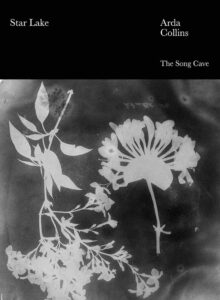
Arda Collins, Star Lake
Arda Collins’s new poems, Star Lake, enact a torque between immediacy and distance, between a visceral near—“An orange in the dark / is like lake air at night” and a resplendent far—“Down the boulevard … Versailles is everywhere.” Against the shadows of Armenian genocide and family loss, the speaker’s calls to “come in the window” or “come to time” are the ground for wondrous evocations.
–Arthur Sze, author of The Glass Constellation: New and Selected Poems
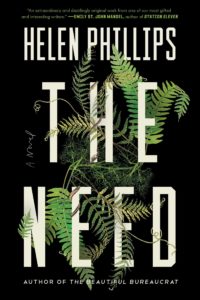
Helen Phillips, The Need
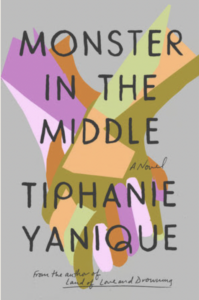
Tiphanie Yanique, Monster in the Middle
Though I read it in the early months of 2022, I’m still taken with the brutality and brilliance of Helen Phillips’ The Need—how slowly it dislocates us from one reality and allows a more sinister reality to take hold, one in which it’s hard to tell between protagonist and nemesis, truth and self-deception. To that top shelf of 2022 reads I’d also add Tiphanie Yanique’s Monster in the Middle. It’s a novel-in-stories that reinvents old forms—like the Hero’s Journey—to give us an intergenerational love story, or rather, a love story between two people, each of them trailed by ancestral heartaches.
–Tania James, author of Loot, forthcoming from Knopf in 2023


